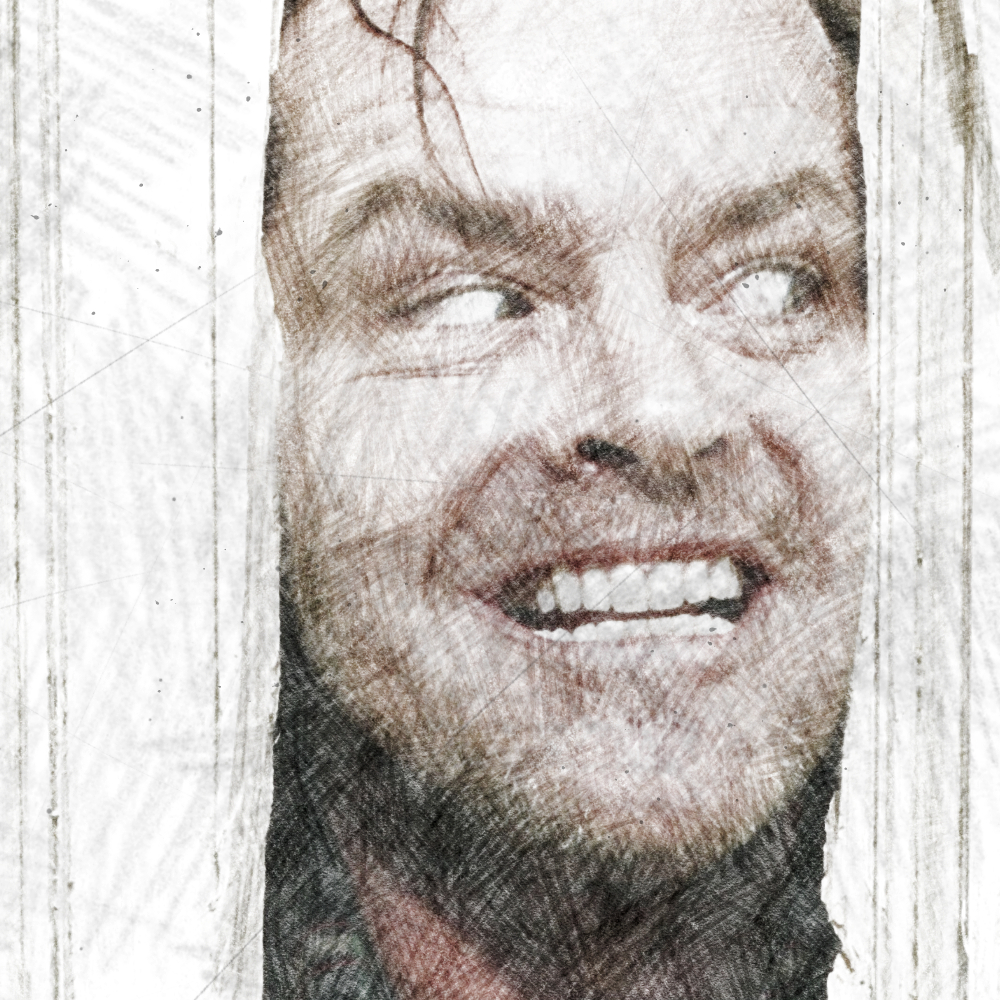Stanley Kubrick’s “The Shining” has become nothing short of a cult classic, with the iconic, tilde-shaped eyebrows of Jack Nicholson wormed into the psyches of multiple generations. The movie has become one of the most renowned and culturally significant adaptations of one of Stephen King’s horror novels, an author with over 40 of his books adapted into either shows or movies.
Despite its widespread praise, King famously despised Kubrick’s adaptation of his book, so much so that he called it “a maddening, perverse, and disappointing film,” likening it to “a great big beautiful Cadillac with no motor inside,” eventually remaking the adaptation himself into a teleplay to finally “correct” Kubrick’s version. King has gone out of his way to vocalize his distaste for the Kubrick adaptation since its release, prompting many to speculate about any deeper-seeded, personal reasons behind his unrelenting criticism of the film.
Notably, prior to the film’s conception, King had written a script of the film for Kubrick, who turned it down, instead opting to explore his own vision of the story. Instead of King, Kubrick collaborated with writer Diane Johnson due to her expertise as a professor of Gothic novels at the University of California, Berkeley, and her contributions to The New York Times Book Review.
Johnson’s background fits the bill of those “avatars of high culture,” as King once called them, who often critiqued his works for being pulpy and formulaic. To add insult to injury, Johnson even remarked, “I thought his books were the sort you find in airports,” as soon as she had finished her work on “The Shining.” Kubrick’s choice of Johnson as screenwriter over King, a hands-on expert in the genre of horror, could have heightened King’s general aversion towards the film and those involved.
Another layer to King’s aversion towards the film could stem from the personal nature of the story, which originated from the memories — “scars,” as King called them — of how life was before selling his first novel. King had been extremely poor at the time, supporting two children with his wife and battling alcoholism, which caused significant tension at home. “By making Jack Torrance a drinker who was trying to quit and by making him a part of the insidious child-beating syndrome that is passed from father to son to grandson,” King said, “I found myself able to look around a dark corner and to see myself as I could have been, under the right set of circumstances.” King further claimed that Jack Torrance was as autobiographical as he’d ever approached in a character. In Jack Torrance’s portrayal, he saw a face that hypnotized him because it was, to a large extent, his own.
King wrote the book as a kind of cathartic release, describing it as “a ritual burning of hate and pain” that offered him a sense of closure, putting his troubled past to rest. However, Kubrick and Johnson’s script depicts Jack less as a protagonist battling and eventually overcoming the darkness within his own mind and evil influences of the Overlook Hotel, and more as an outright psychopath from the very first scene. King’s criticism of the film, particularly regarding Jack’s lack of character development, could have been a protest against the happier ending Kubrick denied him.
Many of King’s criticisms of the film largely arise from the fundamental differences in the intentions behind the book and the movie. The two versions of “The Shining” strive for distinct emotional impacts, occupy similar yet occasionally divergent sub-genres and explore their own thematic territories. King’s version was more of a traditional horror story, with supernatural elements designed to create suspense and escalate terror. Kubrick’s adaptation, on the other hand, was a deep exploration of the mind of a psychopath and the horrors such a mind can inflict on those closest to them.
In King’s perspective, Kubrick’s adaptation was a botched attempt at traditional horror, leaving King with the impression of “a guy who doesn’t know how to tell a joke.” Many of King’s disparaging remarks about the film seem to stem from his struggle to reconcile his perspective on the movie with his long-standing expectations within the horror genre. These expectations, shaped by the demands of his readers and his own years of experience, include a realization of the unbelievable and a disjunction between what we expect to see and what we do see.
Unlike many horror narratives that rely on subverting expectations, “The Shining” builds from an atmosphere of tension and discomfort that is present from the film’s first few scenes. Its horror doesn’t hinge on surprise, but rather on the inevitability, terror and anxiety embedded within the situation.
King’s criticisms, rooted in differences of genre expectations, illuminate the potential for film adaptations to shift and further redefine the boundaries of genres like horror. By doing this, filmmakers can continue to challenge conventional notions of fear, creating films that do not rely on the constraints of predefined conventions and serve to further expand what we perceive as the limitations and possibilities of the horror genre.






Truly • Jun 7, 2024 at 2:19 pm
Kubrick did an outstanding job with the Shining!
First time I thought a movie was better than the novel!!
Paulette Garcia • Apr 20, 2024 at 11:10 am
Wow, I find the fact that they didn’t even try to at least include some of King’s screen writing into the movie really disappointing! They insulted him and talked about King’s writing so horribly but the same person they shot down is the same person they needed to be a success. They needed his book in general to start somewhere. They should have given him all the credit and allowed for him to be a part of it. Maybe the movie could have turned out to be better than what it was with both sides collaborating.
Benjamin S Brenner • May 28, 2024 at 5:41 pm
Kubrick took some inspiration from a piece of pop culture pap and created a masterpiece. He didn’t owe King anything and had every right to pursue his own artistic vision.
Man • Jul 5, 2024 at 5:10 pm
Sorry but no. If he wanted to pursue his own vision, he should have made his own story. He owed King everything because he borrowed from King’s story and characters. But in this case, he mutilated it by hollowing out its heart and soul.
Nothing pap about it, unless you think great, best-selling material is pap. Math doesn’t lie.
Stephen • Jul 13, 2024 at 10:56 pm
I read The Shining as a kid and thought it was very well-written. I saw the film, having no idea what Stephen King thought of it, and was very disappointed.
There were multiple things that disappointed me. The foremost was Danny’s idiotic finger gesturing. Overall, the film seemed filled with corny gimmickry. It’s more of a cartoon than anything.
Teri Marcotte • Mar 16, 2024 at 8:36 am
I’m very much in agreement with Mr. King. The book is the story Kubrick should have followed. To have dismissed the screenplay so out of hand was an out right slap in the face to the author whose story he’s purported to film. I’m an avid reader Of Stephen King books and no I don’t pick them up at airports as that dimwit Johnson suggests. He is a master storyteller, a genius in the art of horror. I’ll take the book every chance I get. Film adaptations always miss the mark. Stephen King’s words in my head are the only way to go for me.
Grace • Jul 19, 2024 at 1:08 am
Did you even watch the film? It was so much deeper and more profound. I grew up reading King’s books. They have value that is their own. However, King has never been able to get over the fact that Kubrik made Jack out to be a bad guy, because King saw Jack as a representation of himself. No redemption for Jack means no redemption for Stephen. It is wrong to generalize and say film adaptations always miss the mark. Sometimes a movie is created out of source material that is just far superior to it. I’ll say this, watch King’s tv miniseries if you want many unintentional laughs while being bored out of your mind most of the time. I believe that is the same complaint made by readers of the original novel. Heck, even King said his work is hamburger, not steak. As the person responsible for creating a great film and piece of storytelling, Kubrik had to be loyal to that above all. King should have grown up and understood Kubrik’s responsibility was to turn out the best work he could with his vision, and not cater to King’s. As it turns out, Kubrik created such a metaphor about old patterns repeating, and on many levels. Kubrick created something that was like an onion with so many layers. I also think it might just really stick in King’s craw that Kubrik was the Mozart to his Salieri, at least this one time.
Morgan Pearce • Jul 31, 2024 at 1:11 pm
but that’s what Stephen king DIddnt want he wanted a faithful version